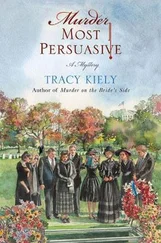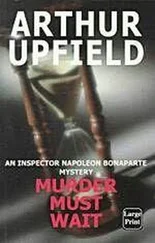Nor was his acquaintance confined to the police. He was on equally familiar terms with many of the hospitals.
“Hallo! Bichat? What about the chap who was brought in half an hour ago? Is he dead yet?”
He was dead, and another little cross went into the notebook. The latter was, in its unpretentious way, quite a mine of information. If you asked Lecœur how many murders in the last twelve months had been done for the sake of money, he’d give the answer in a moment—sixty-seven.
“How many murders committed by foreigners?”
“Forty-two.”
You could go on like that for hours without being able to trip him up. And yet he trotted out his figures without a trace of swank. It was his hobby, that was all.
For he wasn’t obliged to make those crosses. It was his own idea. Like the chats over the telephone lines, they helped to pass the time away, and the result gave him much the same satisfaction that others derive from a collection of stamps.
He was unmarried. Few knew where he lived or what sort of a life he led outside that room. It was difficult to picture him anywhere else, even to think of him walking along the street like an ordinary person. He turned to Janvier to say: “For your cases, we generally have to wait till people are up and about. It’s when a concierge goes up with the post or when a maid takes her mistress’s breakfast into the bedroom that things like that come to light.”
He claimed no special merit in knowing a thing like that. It was just a fact. A bit earlier in summer, of course, and later in winter. On Christmas Day probably later still, as a considerable part of the population hadn’t gotten to bed until two or even later, to say nothing of their having to sleep off a good many glasses of champagne.
Before then, still more water would have gone under the bridge—a few more stolen cars, a few belated drunks.
“Hallo! Saint-Gervais?”
His Paris was not the one known to the rest of us—the Eiffel Tower, the Louvre, the Opéra—but one of somber, massive buildings with a police car waiting under the blue lamp and the bicycles of the agents cyclistes leaning against the wall.
“The chief is convinced the chap’ll have another go tonight,” said Janvier. “It’s just the night for people of that sort. Seems to excite them.”
No name was mentioned, for none was known. Nor could he be described as the man in the fawn raincoat or the man in the grey hat, since no one had ever seen him. For a while the papers had referred to him as Monsieur Dimanche, as his first three murders had been on Sunday, but since then five others had been on weekdays, at the rate of about one a week, though not quite regularly.
“It’s because of him you’ve been on all night, is it?” asked Mambret.
Janvier wasn’t the only one. All over Paris extra men were on duty, watching or waiting.
“You’ll see,” put in Sommer. “when you do get him you’ll find he’s only a loony.”
“Loony or not, he’s killed eight people,” sighed Janvier, sipping his coffee. “Look. Lecœur—there’s one of your lamps burning.”
“Hallo! Your car’s out? What’s that? Just a moment.”
They could see Lecœur hesitate, not knowing in which column to put a cross. There was one for hangings, one for those who jumped out of the window, another for—
“Here, listen to this. On the Pont d’Austerlitz, a chap climbed up onto the parapet. He had his legs tied together and a cord round his neck with the end made fast to a lamppost, and as he threw himself over he fired a shot into his head!”
“Taking no risks, what? And which column does that one go into?”
“There’s one for neurasthenics. We may as well call it that.”
Those who hadn’t been to Midnight Mass were now on their way to early service. With hands thrust deep in their pockets and drops on the ends of their noses, they walked bent forward into the cutting wind, which seemed to blow up a fine, icy dust from the pavements. It would soon be time for the children to be waking up, jumping out of bed, and gathering barefoot around lighted Christmas trees.
“But it’s not at all sure the fellow’s mad. In fact, the experts say that if he was he’d always do it the same way. If it was a knife, then it would always be a knife.”
“What did he use this time?”
“A hammer.”
“And the time before?”
“A dagger.”
“What makes you think it’s the same chap?”
“First of all, the fact that there’ve been eight murders in quick succession. You don’t get eight new murderers cropping up in Paris all at once.” Belonging to the Police Judiciaire, Janvier had, of course, heard the subject discussed at length. “Besides, there’s a sort of family likeness between them all. The victims are invariably solitary people, people who live alone, without any family or friends.”
Sommer looked at Lecœur, whom he could never forgive for not being a family man. Not only had he five children himself, but a sixth was already on the way. “You’d better look out, Lecœur—you see the kind of thing it leads to!”
“Then, not one of the crimes has been committed in one of the wealthier districts.”
“Yet he steals, doesn’t he?”
“He does, but not much. The little hoards hidden under the mattress— that’s his mark. He doesn’t break in. In fact, apart from the murder and the money missing, he leaves no trace at all.”
Another lamp burning. A stolen car found abandoned in a little side street near the Place des Ternes.
“All the same, I can’t help laughing over the people who had to walk home.”
Another hour or more and they would be relieved, except Lecœur, who had promised to do the first day shift as well so that his opposite number could join in a family Christmas party somewhere near Rouen.
It was a thing he often did. so much so that he had come to be regarded as an ever-ready substitute for anybody who wanted a day off.
“I say. Lecœur, do you think you could look out for me on Friday?”
At first the request was proffered with a suitable excuse—a sick mother, a funeral, or a First Communion, and he was generally rewarded with a bottle of wine. But now it was taken for granted and treated quite casually.
To tell the truth, had it been possible, Lecœur would have been only too glad to spend his whole life in that room, snatching a few hours’ sleep on a camp bed and picnicking as best he could with the aid of the little electric stove. It was a funny thing—although he was as careful as any of the others about his personal appearance, and much more so than Sommer, who always looked a bit tousled, there was something a bit drab about him which betrayed the bachelor.
He wore strong glasses, which gave him big, globular eyes, and it came as a surprise to everyone when he took them off to wipe them with the bit of chamois leather he always carried about to see the transformation. Without them, his eyes were gentle, rather shy, and inclined to look away quickly when anyone looked his way.
“Hallo! Javel?”
Another lamp. One near the Quai de Javel in the 15th Arrondissement, a district full of factories.
“ Votre car est sorti?”
“We don’t know yet what it is. Someone’s broken the glass of the alarm in the Rue Leblanc.”
“Wasn’t there a message?”
“No. We’ve sent our car to investigate. I’ll ring you again later.”
Scattered here and there all over Paris are red-painted telephone pillars standing by the curb, and you have only to break the glass to be in direct telephone communication with the nearest police station. Had a passerby broken the glass accidentally? It looked like it, for a couple of minutes later Javel rang up again.
Читать дальше












